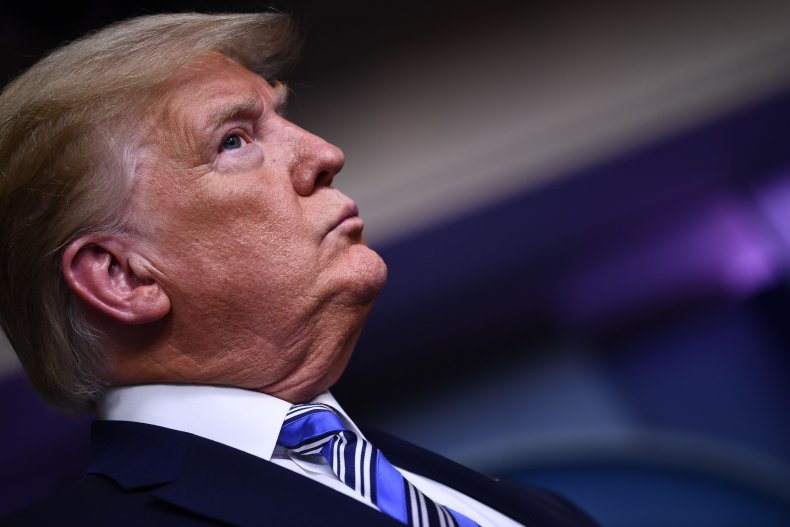Suicides Fell by 2,600 in 2020, Despite Donald Trump's Lockdown Warnings
Suicide rates dropped in 2020 despite former President Donald Trump warning that COVID-19 lockdowns would lead to an increasing number of people taking their own lives.
Total U.S. suicides for 2020 numbered 44,834, over 2,600 fewer deaths than 2019's total of 47,511, according to National Center for Health Statistics figures cited in an article published Wednesday by the Journal of the American Medical Association. A smaller decrease of around 800 happened between 2018 and 2019.
COVID-19 was the third leading cause of death in 2020, responsible for 345,323 deaths. The top cause of death, heart disease, increased by roughly 31,000 deaths from 659,041 deaths in 2019 to 690,882 deaths in 2020. Cancer remained the second most common cause, slightly decreasing from 599,601 deaths in 2019 to 598,932 deaths in 2020.
The numbers appear to be at odds with predictions from Trump and others who warned of a massive spike in suicides caused by imposing public health restrictions amid the pandemic. Although restrictions did go into effect in most states last spring, they do not seem to have inspired any excess number of suicides.
While many states were just beginning to lock down on March 22, 2020, Trump tweeted "we cannot let the cure be worse than the problem itself." In the following days, he made multiple comments suggesting that increased suicides would result from restrictions that shut down the economy, claiming that deaths caused by the lockdowns would be greater than those caused by the virus.
"People get tremendous anxiety and depression, and you have suicides over things like this when you have terrible economies," Trump said during a news conference on March 23, 2020. "You have death. Probably and—I mean, definitely—would be in far greater numbers than the numbers that we're talking about with regard to the virus."
"You're going to lose more people by putting a country into a massive recession or depression. You're going to lose people," he added at a Fox News town hall event on the following day. "You're going to have suicides by the thousands."
Newsweek reached out to Trump's office for comment.

An article published by the medical journal BMJ on Monday also found that the pandemic had not led to a wave of suicides in the U.S., along with several other countries, while noting that some caution was warranted because much of the data analyzed was preliminary and the impact of the pandemic may differ between communities.
"From the earliest days of the pandemic there was concern that suicide would increase," the article states. "It wasn't hard to see where the risks might come from: anxiety about infection, isolation, disrupted care, domestic violence, alcohol, recession. Actual figures, though, took months to appear."
"Now we have reports from several countries, based on national or state level suicide data," it continues. "They come from Australia, Canada, New Zealand, Norway, Peru, Sweden, and the US—high income countries in most cases—and they carry a consistent message. Suicide rates have not risen."
Drug overdose deaths, also cited by some as a potential consequence of lockdowns, do appear to have spiked amid the pandemic. Figures from the Centers for Disease Control and Prevention show about 17,000 additional reported deaths when comparing figures for the 12-month period ending in August 2019 to the 12-month period ending in August 2020. However, it is not clear how much of a role the lockdowns themselves, which had ended in most areas by the summer, may have played in the increase.
While there was no spike in suicides in 2020, some of the suicides that did occur may have been directly related to COVID-19. In March of this year, the family of Texas Roadhouse CEO Kent Taylor said that he died after experiencing long-term COVID-19 symptoms including severe tinnitus, taking his own life after "suffering that greatly intensified" in the preceding days.
If you have thoughts of suicide, confidential help is available for free at the National Suicide Prevention Lifeline. Call 1-800-273-8255. The line is available 24 hours every day.

